Forced Migration and Humanitarian Action Seminar Highlights the Importance of Data-driven Responses, Policy Coordination, and Inclusive Programming
2025.04.03
Following the book launch seminar for “Forced Migration and Humanitarian Action: Operational Challenges and Solutions for Supporting People on the Move ” on Jan. 30, 2025, the JICA Ogata Sadako Research Institute for Peace and Development (JICA Ogata Research Institute) and Sophia University Institute of Comparative Culture held another seminar on the next day to continue discussions on key themes related to forced migration and humanitarian response. Moderated by Orita Tomomi , Principal Research Fellow at the JICA Ogata Research Institute and featuring experts from international organizations, non-governmental organizations and research institutions, the event explored different aspects of forced migration, displacement tracking, and inclusive humanitarian action.
In her opening remarks, Miyahara Chie, Director General of the JICA Ogata Research Institute, highlighted how conflicts, natural disasters, climate change, and poverty are precipitating an ongoing multifaceted crisis. She underscored JICA’s commitment to promoting the humanitarian-development-peace nexus and acknowledged the contributions of researchers and practitioners in informing humanitarian assistance.
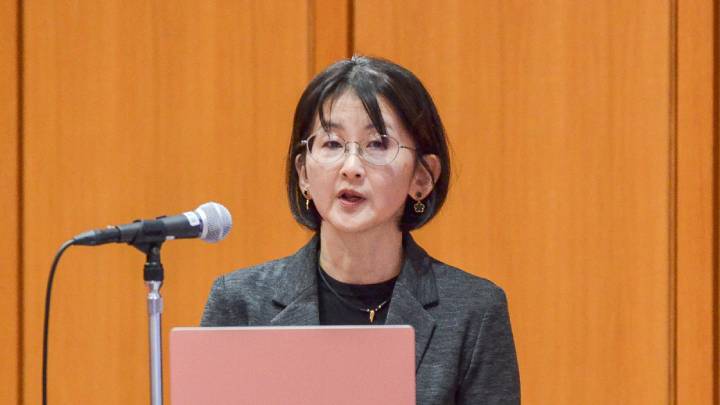
Miyahara Chie, Director General of the JICA Ogata Research Institute
Lisette R. Robles
, Visiting Fellow at the JICA Ogata Research Institute, outlined the focus and purpose of the book, which is the results of a three-year research project, “Evolving Humanitarian Action for Forced Migration
,” conducted by the JICA Ogata Research Institute. She introduced the project that examines forced migration through various lenses, including gender, disability, and displacement monitoring, and provides an overview of the case studies, which offer real-world insights into the challenges faced by displaced populations and the effectiveness of humanitarian responses. The research project underscores the need to adapt humanitarian action for at-risk populations and highlights the role of human security in crisis response. She explained that through the project’s resulting book and the guidance note, the objective of bridging academic research with practical humanitarian action can be realized.
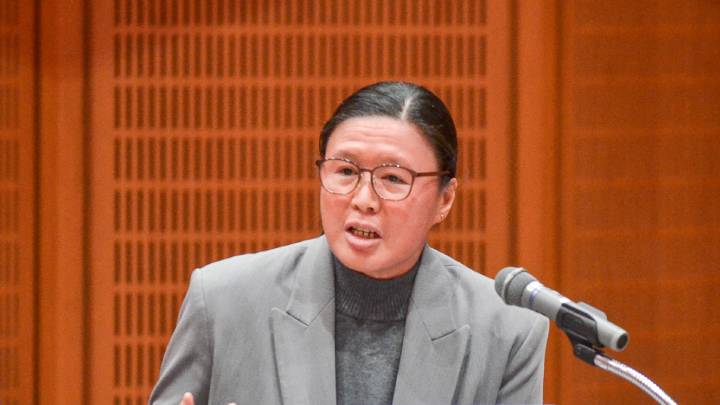
Lisette R. Robles, Visiting Fellow at the JICA Ogata Research Institute
Oliver Neuschaefer, Christian Blind Mission
(CBM), presented on disability-inclusive humanitarian action, drawing from his work at CBM. He discussed the significance of the UN Convention on the Rights of Persons with Disabilities in shaping humanitarian interventions and ensuring the inclusion of people with disabilities in humanitarian responses.
His presentation underscored the barriers that people with disabilities face during crises, including accessibility challenges, discrimination, and exclusion from humanitarian programs. He called for improved data collection, policy reforms, and greater engagement with disabled persons’ organizations to ensure that humanitarian responses are genuinely inclusive.
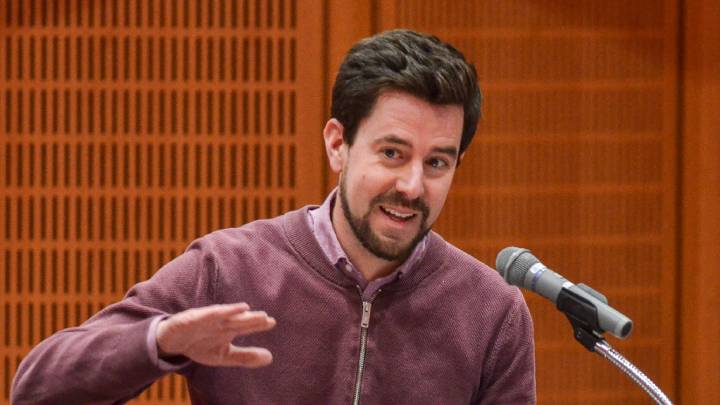
Oliver Neuschaefer, Christian Blind Mission
Nikki Herwanger and Alexandra Bate from the International Organization for Migration
(IOM) introduced the IOM’s Displacement Tracking Matrix
(DTM), explaining its role in tracking and analysing displacement data and outlining how it informs all of IOM’s three objectives: protecting people on the move, driving solutions to displacement, and facilitating migration pathways. They outlined DTM’s methodologies, including mobility tracking, flow monitoring, registration activities, and surveys, citing Libya’s 2023 Storm Daniel response as an example of its impact.
They concluded by emphasizing the importance of DTM in humanitarian action and inviting further engagement. DTM data supports IOM programs, humanitarian organizations, governments, and development actors and has contributed to interagency frameworks on data responsibility, such as the Inter-agency Standing Committee Operational Guidance.
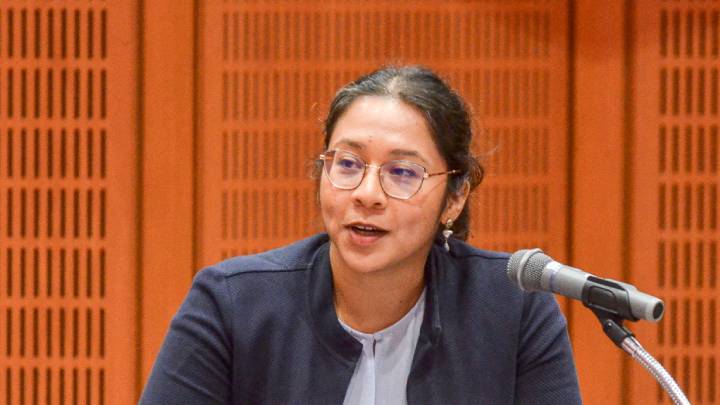
Nikki Herwanger, the International Organization for Migration
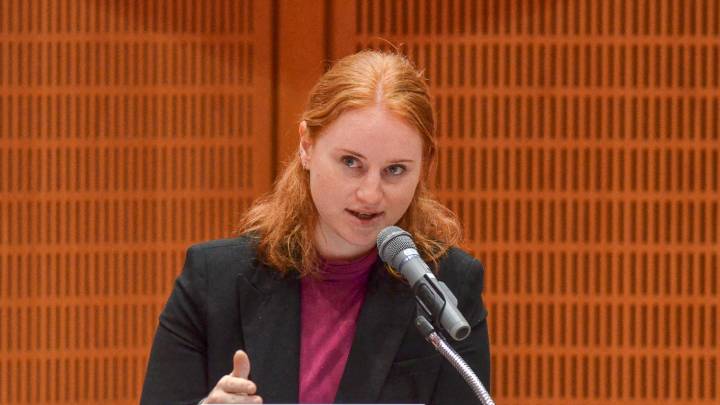
Alexandra Bate, the International Organization for Migration
Irene Schöfberger and Salma Hazem Nooh, both previously with Global Migration Data Analysis Centre
, IOM, highlighted data challenges in child migration humanitarian programming, including outdated censuses, inconsistent methodologies, and difficulty accessing child migrants, particularly those avoiding contact. These gaps hinder program design, advocacy, and funding, making the most vulnerable children harder to assist.
Their case study on Northern Africa and Southern Europe found protection gaps due to unclear humanitarian responsibilities and limited data on child migrants' needs and coping strategies. This affects humanitarian response and long-term planning, but solutions such as proxy indicators, integrating macro- and micro-level data, and leveraging operational data can help address these challenges.
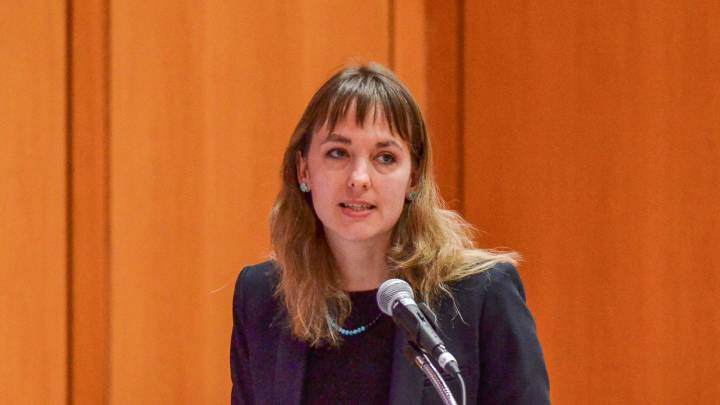
Irene Schöfberger, previously with Global Migration Data Analysis Centre, IOM
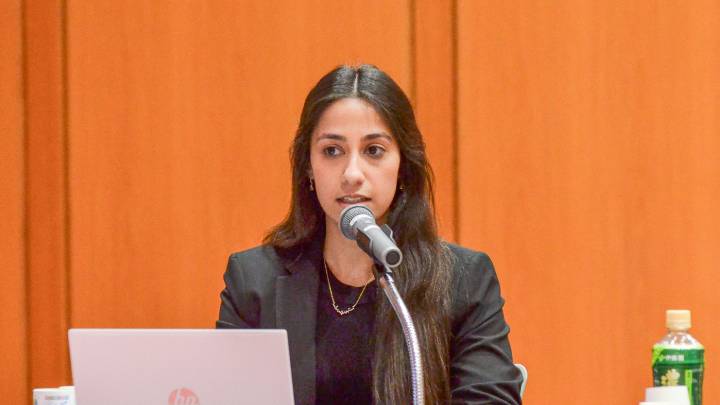
Salma Hazem Nooh, previously with Global Migration Data Analysis Centre, IOM
Louisa Yasukawa, previously with the Internal Displacement Monitoring Centre
(IDMC), presented on the role of IDMC in tracking internally displaced populations (IDPs). She highlighted that internal displacement often receives less attention in the media, research and political discussions than cross-border migration, despite IDPs outnumbering refugees and asylum seekers globally.
She also reflected on her work with the Office of the United Nations High Commissioner for Refugees (UNHCR) in Ecuador, where she supported refugees from Colombia and Venezuela seeking resettlement, noting that many had been internally displaced multiple times before crossing borders. Her experience articulated the risks facing marginalized groups, the barriers to accessing humanitarian programs, and the need for inclusive programming, accessible information, and training in gender- and disability-inclusive approaches.
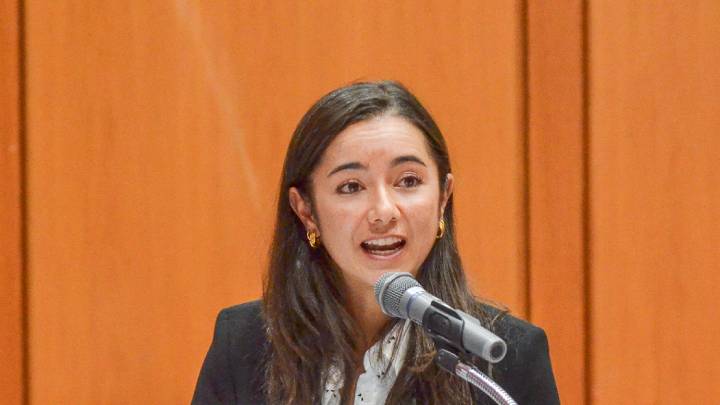
Louisa Yasukawa, previously with the Internal Displacement Monitoring Centre and UNHCR
Lorenzo Guadagno, Programme Manager, Platform on Disaster Displacement (PDD), discussed the role of PDD, which links global policy to national action on disaster displacement. He noted that displacement due to natural hazards and climate change can occur before, during, or after disasters, creating both immediate and long-term vulnerabilities, yet it has been overlooked in policy.
He explained that the PDD supports policy development in countries like Bangladesh and Fiji and works with IOM, UNHCR, and the Red Cross on preparedness, evacuation drills, and shelter management. He shared examples of cross-border evacuation training in multiple countries, such as Kenya. He concluded by emphasizing the ongoing need for policy development, awareness-raising, and local preparedness efforts to strengthen responses to disaster displacement.
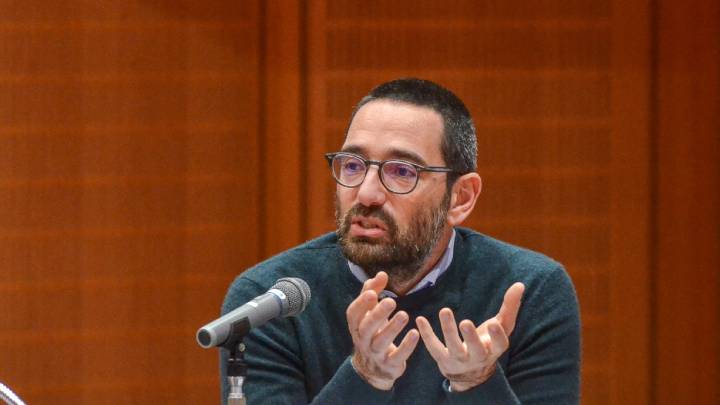
Lorenzo Guadagno, Programme Manager, Platform on Disaster Displacement
In his response, David Slater, Professor at the Faculty of Liberal Arts, Sophia University, commended the volume for mobilizing scholars on critical topics, but also stressed the need to reach larger audiences beyond academic circles. He encouraged organizations like JICA, UNHCR, and IOM to expand their engagement with universities and students through lecture series, course funding, and alternative formats—such as graphic novels, films, and gamification—noting that students are eager to engage with real-world issues but need platforms to do so.
He also highlighted barriers for frontline NGOs, which lack time and resources to engage with academic research, and suggested corporate partnerships as a funding source. Finally, he emphasized the need to co-author research with affected populations, citing Sophia University project, where refugees and asylum seekers collaborate with students on research. He concluded by stressing the importance of finding new, inclusive ways to share research with a broader audience.
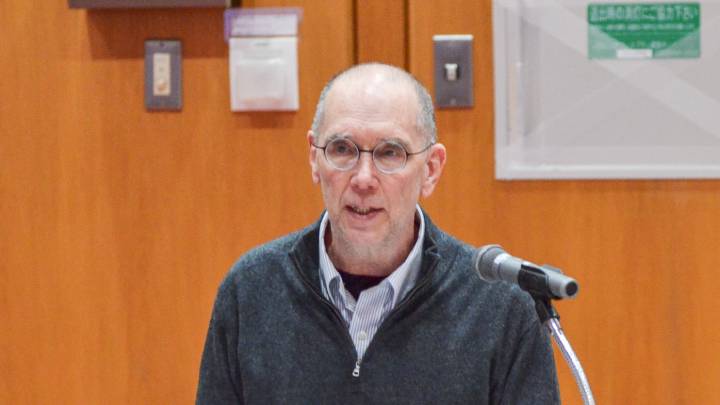
David Slater, Professor at the Faculty of Liberal Arts, Sophia University
Following the presentations, a lively discussion ensued with questions from the audience.
A video recording of this seminar can be watched from the link below.
The seminar program can be found here
.

事業事前評価表(地球規模課題対応国際科学技術協力(SATREPS)).国際協力機構 地球環境部 . 防災第一チーム. 1.案件名.国 名: フィリピン共和国.

事業事前評価表(地球規模課題対応国際科学技術協力(SATREPS)).国際協力機構 地球環境部 . 防災第一チーム. 1.案件名.国 名: フィリピン共和国.

事業事前評価表(地球規模課題対応国際科学技術協力(SATREPS)).国際協力機構 地球環境部 . 防災第一チーム. 1.案件名.国 名: フィリピン共和国.

事業事前評価表(地球規模課題対応国際科学技術協力(SATREPS)).国際協力機構 地球環境部 . 防災第一チーム. 1.案件名.国 名: フィリピン共和国.

事業事前評価表(地球規模課題対応国際科学技術協力(SATREPS)).国際協力機構 地球環境部 . 防災第一チーム. 1.案件名.国 名: フィリピン共和国.
scroll